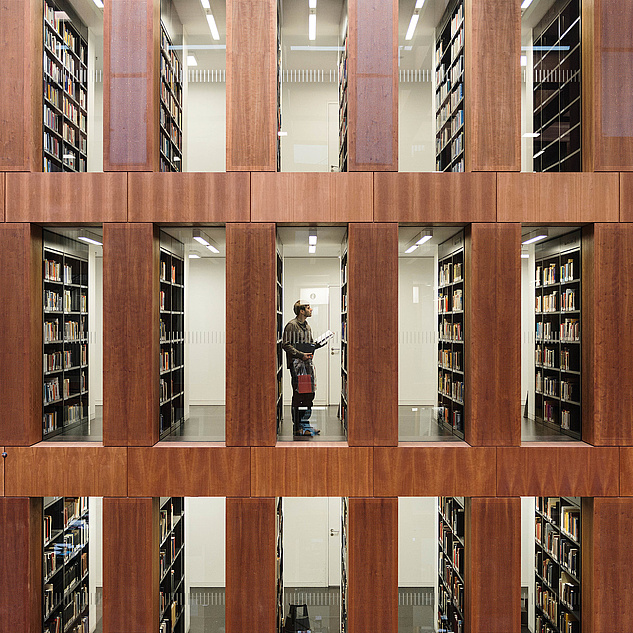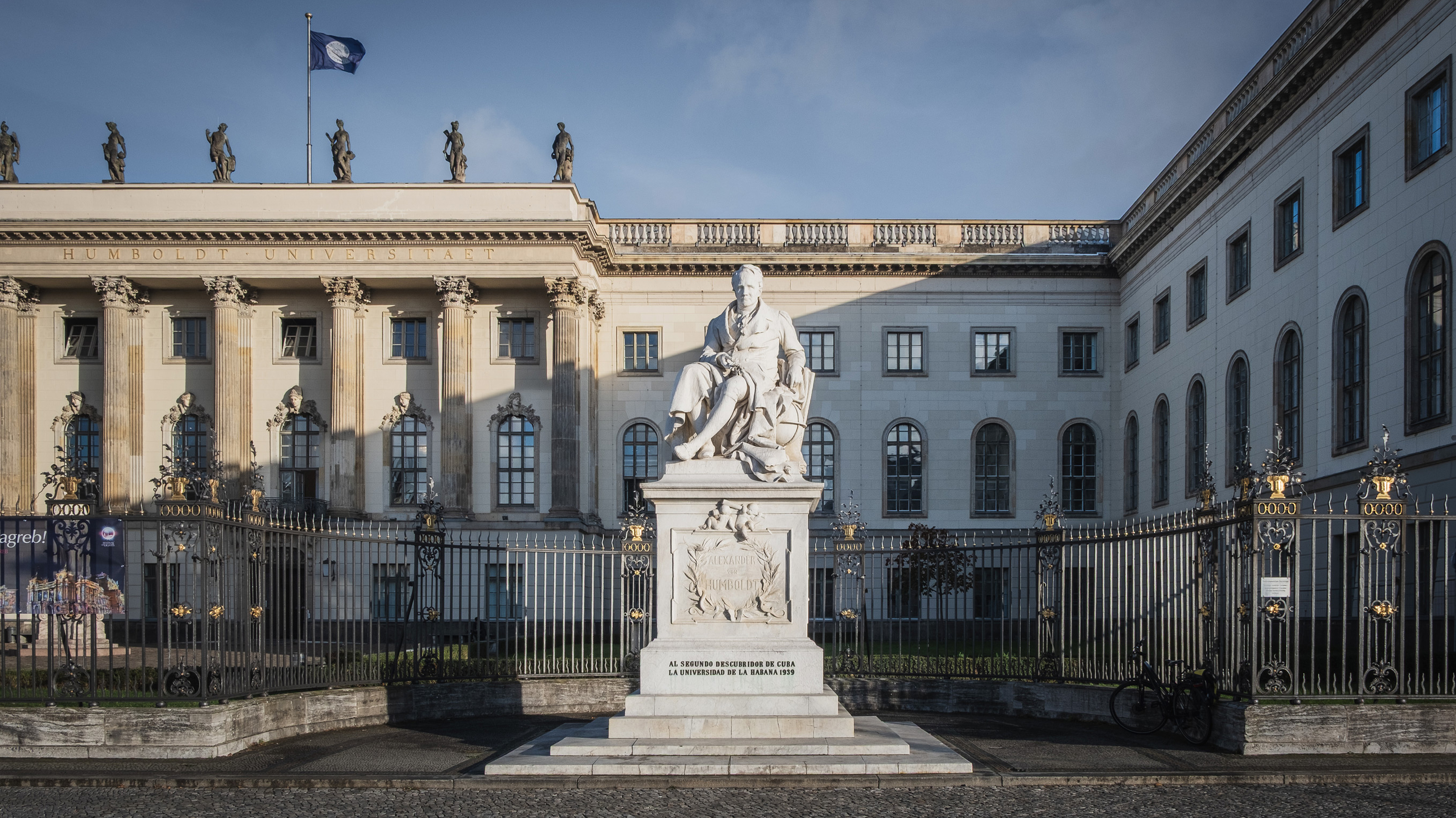Ihr Weg an die Humboldt-Universität
Aktuelle Nachrichten
Aktuelle Veranstaltungen
FAQ zu Hochschulvertrag und notwendigen Sparmaßnahmen
Die von der Berliner Landesregierung beschlossenen Kürzungen im Wissenschaftsbereich zwingen alle Berliner Hochschulen zu harten Sparmaßnahmen. Das gilt auch für die HU. Wichtige Informationen zu den Hochschulverträgen, unterschiedlichen Maßnahmen und zum Einsparprozess an der HU haben wir hier für Sie zusammengestellt.
Studium an der HU
Das Studium an der Humboldt-Universität ist einzigartig: Es verbindet interdisziplinäre Bildung, Forschung und Praxis. In mehr als 170 Studiengängen bieten wir Studierenden eine frühe Einbindung in Forschungsprojekte, fördern das kritische Denken und den offenen Dialog über das Curriculum hinaus.

Studium an der HU
Das Studium an der Humboldt-Universität ist einzigartig: Es verbindet interdisziplinäre Bildung, Forschung und Praxis. In mehr als 170 Studiengängen bieten wir Studierenden eine frühe Einbindung in Forschungsprojekte, fördern das kritische Denken und den offenen Dialog über das Curriculum hinaus.
Forschung & Lehre
An der Humboldt-Universität gehören Forschung und Lehre – ganz im Sinne unserer Namensgeber – untrennbar zusammen. Dieses Prinzip gilt ausdrücklich auch für Wissenschaftler*innen in frühen Karrierephasen, die früh Verantwortung in Forschung und Lehre übernehmen können. Die HU ist eine exzellente Forschungsuniversität, die national und international in vielen Bereichen Spitzenleistungen erbringt.

Forschung & Lehre
An der Humboldt-Universität gehören Forschung und Lehre – ganz im Sinne unserer Namensgeber – untrennbar zusammen. Dieses Prinzip gilt ausdrücklich auch für Wissenschaftler*innen in frühen Karrierephasen, die früh Verantwortung in Forschung und Lehre übernehmen können. Die HU ist eine exzellente Forschungsuniversität, die national und international in vielen Bereichen Spitzenleistungen erbringt.
Open Humboldt
Unter dem Motto Open Humboldt teilen wir unser Wissen, unsere Expertise und Infrastrukturen über die Campusgrenzen hinaus. Dabei stehen wir in ständigem Austausch mit Wirtschaft und Gesellschaft. Wir möchten Menschen informieren und inspirieren, Partizipation fördern und ermöglichen.

Open Humboldt
Unter dem Motto Open Humboldt teilen wir unser Wissen, unsere Expertise und Infrastrukturen über die Campusgrenzen hinaus. Dabei stehen wir in ständigem Austausch mit Wirtschaft und Gesellschaft. Wir möchten Menschen informieren und inspirieren, Partizipation fördern und ermöglichen.
Unsere Universität
Die Humboldt-Universität zu Berlin verbindet wissenschaftliche Exzellenz mit gesellschaftlicher Verantwortung. Geleitet vom Erbe Humboldts steht sie für freie, unabhängige Forschung, forschendes Lernen und einen offenen Wissensaustausch mit der Gesellschaft. Sie bietet Raum für Vielfalt, kritische Debatten und neue Perspektiven – mitten im Herzen Berlins, weltweit vernetzt.

Unsere Universität
Die Humboldt-Universität zu Berlin verbindet wissenschaftliche Exzellenz mit gesellschaftlicher Verantwortung. Geleitet vom Erbe Humboldts steht sie für freie, unabhängige Forschung, forschendes Lernen und einen offenen Wissensaustausch mit der Gesellschaft. Sie bietet Raum für Vielfalt, kritische Debatten und neue Perspektiven – mitten im Herzen Berlins, weltweit vernetzt.










